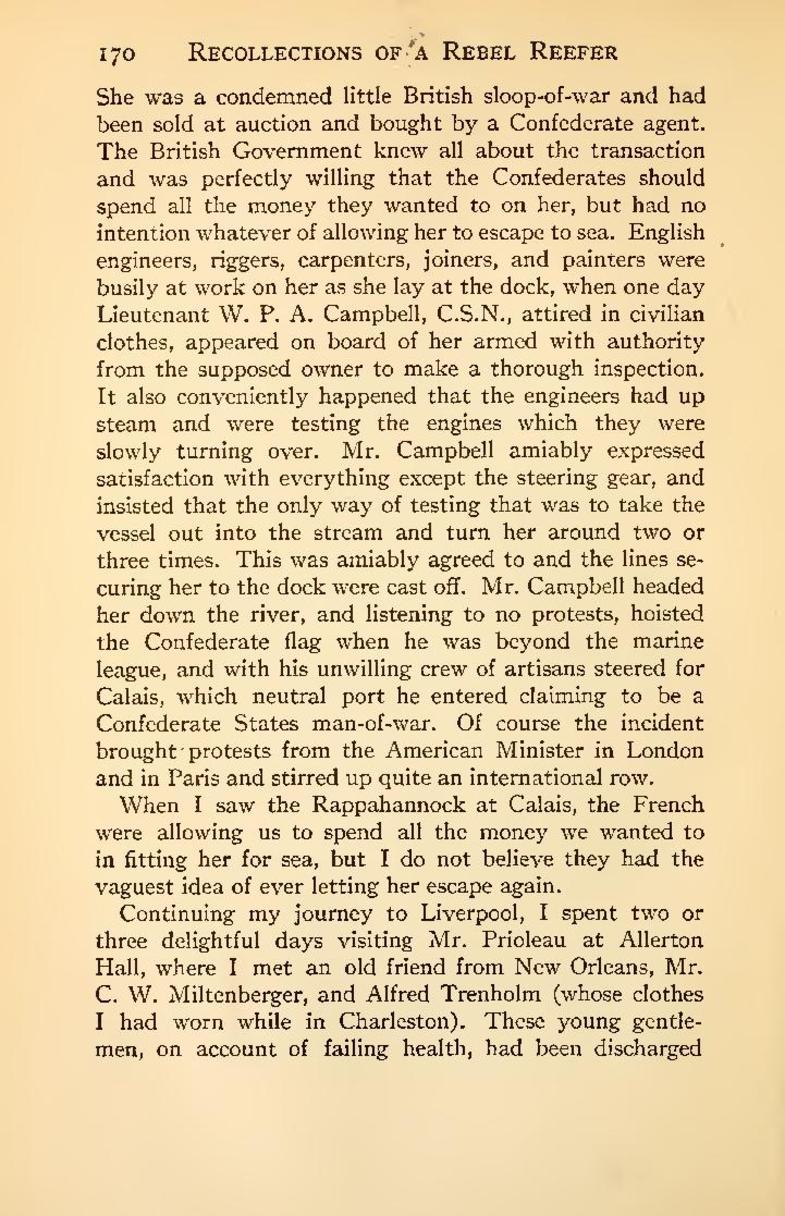She was a condemned little British sloop-of-war and had been sold at auction and bought by a Confederate agent. The British Government knew all about the transaction and was perfectly willing that the Confederates should spend all the money they wanted to on her, but had no intention whatever of allowing her to escape to sea. English engineers, riggers, carpenters, joiners, and painters were busily at work on her as she lay at the dock, when one day Lieutenant W. P. A. Campbell, C.S.N. attired in civilian appeared on board of her armed with authority from the supposed owner to make a thorough inspection. It also conveniently happened that the engineers had up steam and were testing the engines which they were slowly turning over. Mr. Campbell amiably expressed satisfaction with everything except the steering gear, and insisted that the only way of testing that was to take the vessel out into the stream and turn her around two or three times. This was amiably agreed to and the lines securing her to the dock were cast off. Mr. Campbell headed her down the river, and listening to no protests, hoisted the Confederate flag when he was beyond the marine league, and with his unwilling crew of artisans steered for which neutral port he entered claiming to be a Confederate States man-of-war. Of course the incident brought protests from the American Minister in London and in Paris and stirred up quite an international row.
When I saw the Rappahannock at Calais, the French were allowing us to spend all the money we wanted to in fitting her for sea, but I do not believe they had the vaguest idea of ever letting her escape again.
Continuing my journey to Liverpool, I spent two or three delightful days visiting Mr. Prioleau at Allerton Hall, where I met an old friend from New Orleans, Mr. C. W. Miltenberger, and Alfred Trenholm (whose clothes I had worn while in Charleston). These young men, on account of failing health, had been discharged
